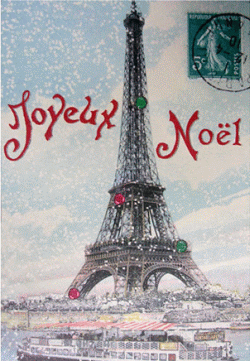 posted by Simon Kemp
posted by Simon Kemp
Adventures on the Bookshelf is about to head off for its Christmas break. There’s just time for a quick look back at 2015 before we go.
For France, 2015 opened with a tragedy and has closed with another one. In January, we looked at responses in the French press to the shootings at Charlie Hebdo.
Last month, we found ourselves witnessing another massacre, this time on a much larger scale, with the attacks on the Bataclan concert hall, the Stade de France, and diners and drinkers of Paris’s cafe culture. Again, we looked at some of the responses to the events in the French media.
In between, though, there was much to explore in French language, literature and life. We learned how to make grammatically correct chocolate cake with the aid of glamorous French movie stars, discovered why Terry Pratchett causes trouble for French gender rules, and uncovered the complex secrets of the mysterious Mrs Vandertramp.
Expanding our vocabulary, we encountered the gripping etymological drama of the unicorn and the crayfish, found out what the cool kids on the street are saying these days, and learned the hidden connection between limousines and bayonets. Plus, there was the opportunity to laugh at hapless French sign-writers struggling with their own language, or try your skills in our fiendish faux-amis quiz.
Guest appearances were made by two more heroes who gave their lives to the service of the French nation and their surnames to the service of the French dictionary: Joseph-Ignace Guillotin and Etienne de Silhouette.
We also discovered what the students at Oxford have been up to lately, from turning parchments into webpages to falling in love with the Montmartre district of Paris.
As ever, there were suggestions of books and films you might like to if you want to explore French culture in a little more depth.
And, snuck in among the other posts, were a few reasons why you might like to think seriously about doing a degree in modern languages, and a little advice on how you might go about it if you wanted to apply to study the subject with us.
Merry Christmas to you from the Oxford Modern Languages Faculty. Thank you for reading, and we’ll see you on the first Wednesday in the New Year.





